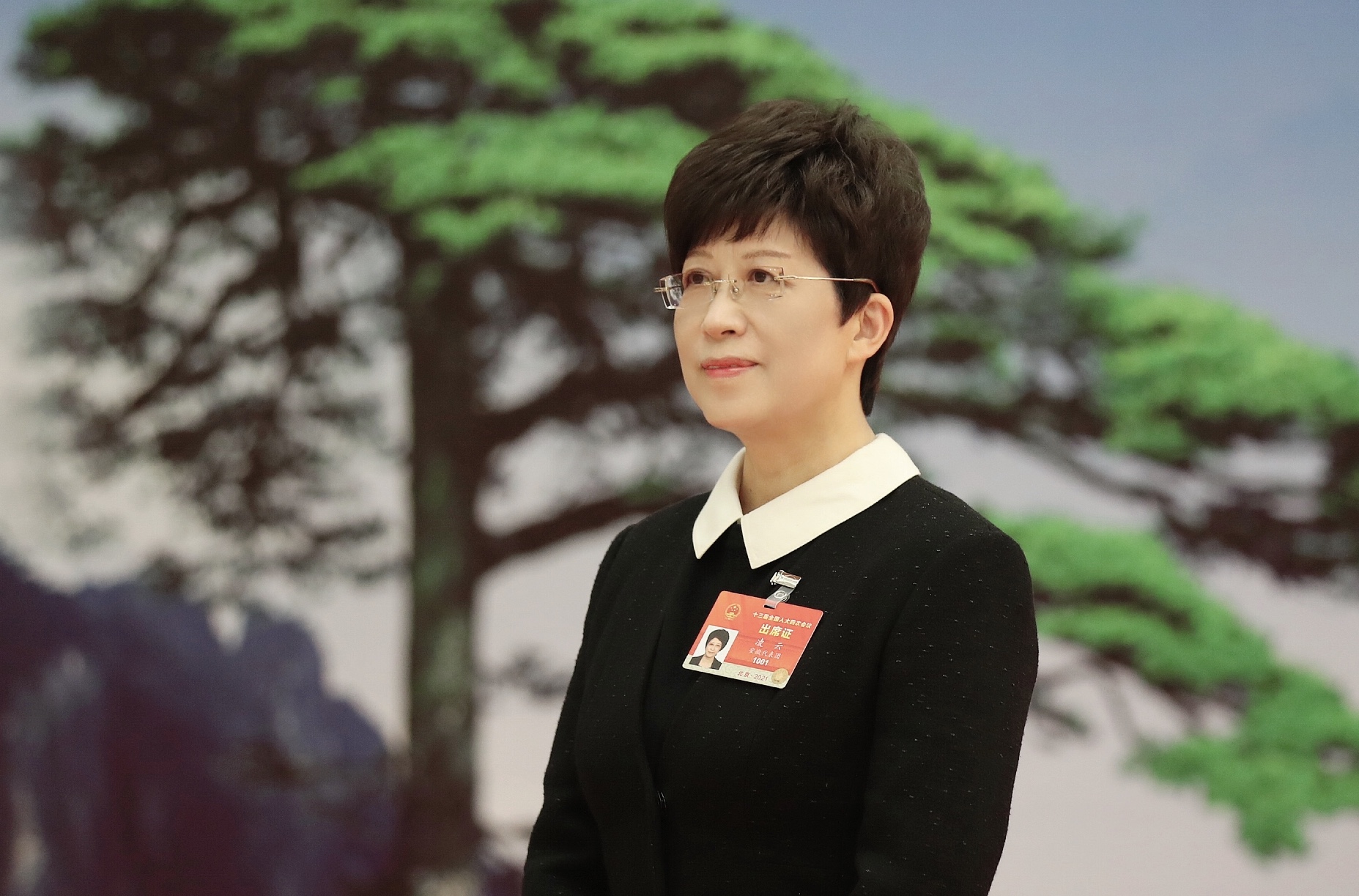Hefei mayor on pursuing a higher level of opening-up
Efforts will be made to turn the city of Hefei into a new pacesetter for opening-up, said Ling Yun, mayor of Hefei and a deputy to the 13th National People's Congress (NPC).
Efforts will be made to turn the city of Hefei into a new pacesetter for opening-up, said Ling Yun, mayor of Hefei and a deputy to the 13th National People's Congress (NPC), China's national legislature.

Hefei will promote the construction of platforms that facilitate opening up, including the Hefei Area of the China (Anhui) Pilot Free Trade Zone (FTZ), explained Ling during an interview with China.org.cn at the ongoing fourth session of the 13th NPC.
Hefei, the capital and largest city of Anhui province in east China, is a sub-center of the Yangtze River Delta city cluster and a comprehensive national scientific center.
According to Ling, in line with the national development strategy, Hefei has improved its work mechanisms to promote the construction of the Anhui FTZ's Hefei Area as well as carried out many institutional innovations.
In addition, centering on the functional positioning of the Anhui FTZ's Hefei Area, Hefei has supported the development of 10 key industries, including AI and new energy vehicles in an attempt to attract foreign businesses and investment.
Initial progress has been made since the FTZ's Hefei Area was officially inaugurated on Sept. 24, 2020.
As of the end of January 2021, 232 projects have been signed with a total investment of 107 billion yuan. Meanwhile, the number of newly established enterprises stood at 2,656 and the registered capital of domestic-funded enterprises increased by 51.3 billion yuan.
Speaking of the next plans for Hefei to promote a higher level of opening up and high-quality economic development during the 14th Five-Year Plan (2021-2025) period, Ling mentioned making greater efforts in various areas, including scientific research and innovation.
In the 2021 draft plan for national economic and social development delivered on March 5, 2021, the development of Hefei comprehensive national science center is listed as an important task in strengthening China's capacity for scientific and technological innovation.
In order to strengthen science and technology sectors as strategic support for national development, Ling suggested further construction of Hefei comprehensive national science center, building the city into a national hub for big data centers.
Besides emphasizing scientific research and innovation, Ling also highlighted the development of strategic emerging industries, including those related to the manufacture of computer chips, flat-panel displays, industrial robots, and various electronic equipment, as well as the integration of the AI and manufacturing industries.
Boosting investment, import and export trade, and promoting the integrated development of the Yangtze River Delta will also be key tasks for Hefei to achieve a high-standard opening up.
In 2020, the city's total import and export volume stood at $37.487 billion, 1.8 times that of 2015, with an average annual growth rate of 12.1%, ranking 8th among provincial capital cities in China. As of the end of 2020, a total of 49 overseas Fortune Global 500 companies have invested in Hefei and established 67 corporate companies in the city.
"Hefei will scale up efforts to build itself into a national-level China-Europe freight train distribution hub, an international air freight distribution center, and the shipping center in the Yangtze and Huaihe river basins, giving greater play to its role as a comprehensive bonded zone and a cross-border e-commerce comprehensive pilot zone, and stimulating the high-quality development of foreign trade," Ling said.
"Efforts will be put into accelerating the development of a group of leading foreign trade enterprises and encouraging more enterprises with competitive advantages to go global," Ling added. "We will transform government functions at a faster pace and carry out reform in various areas including the provision of efficient government services to make it easier for companies to get things done and to foster a world-class business environment."

